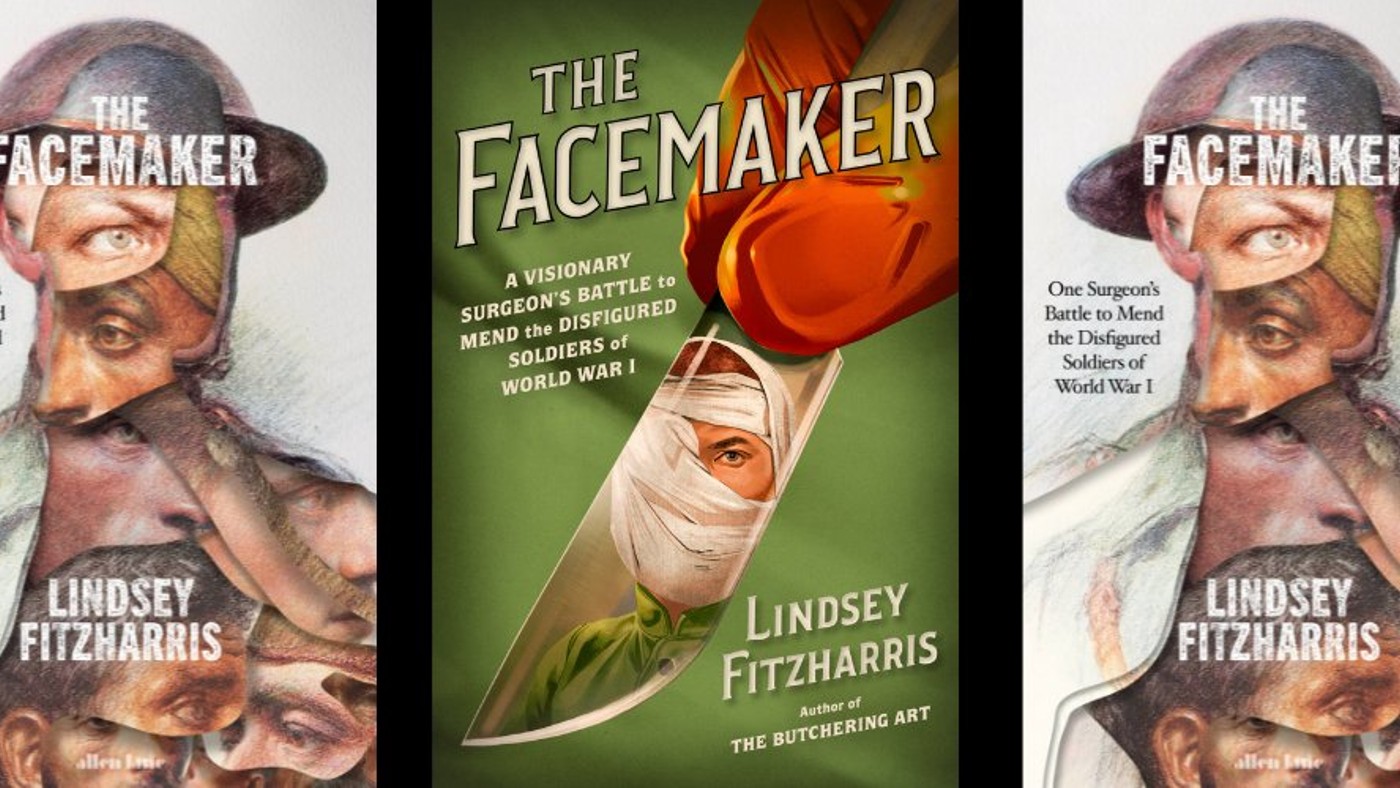Book of the week: The Facemaker by Lindsey Fitzharris
This ‘engrossing’ biography provides a ‘hugely enjoyable’ portrait of a brilliant surgeon

A free daily email with the biggest news stories of the day – and the best features from TheWeek.com
You are now subscribed
Your newsletter sign-up was successful
For many soldiers in the First World War, “the fear of being permanently disabled was more terrifying than death”, said Wendy Moore in The Guardian. And worst of all was the prospect of facial disfigurement. While those who lost a limb were “treated as heroes”, those with damaged faces were “often shunned or reviled”.
The New Zealand-born surgeon Harold Gillies devoted his working life to these men, transforming the emerging art of plastic surgery and helping thousands to “literally face the world again”. At the Queen’s Hospital in Sidcup, Kent – the world’s first specialist maxillofacial unit – he developed pioneering reconstructive techniques, including complex “skin, cartilage and bone grafts”.
Lindsey Fitzharris’s “engrossing” biography isn’t for the fainthearted: it is full of “gruesome injuries and gruelling operations”. Yet it provides a “moving and hugely enjoyable” portrait of a brilliant and “extraordinarily compassionate” man.
The Week
Escape your echo chamber. Get the facts behind the news, plus analysis from multiple perspectives.

Sign up for The Week's Free Newsletters
From our morning news briefing to a weekly Good News Newsletter, get the best of The Week delivered directly to your inbox.
From our morning news briefing to a weekly Good News Newsletter, get the best of The Week delivered directly to your inbox.
Today, when cosmetic surgery is primarily associated with “elective procedures for the wealthy and vain”, this “fascinating” book is a useful reminder that it “evolved under the most brutal conditions”, said Lorraine Berry in the LA Times. The “mechanised weapons” of WWI “destroyed flesh more efficiently than ever before”: some 280,000 soldiers on the Western Front are thought to have been facially disfigured.
Their injuries triggered “primal emotions and beliefs”. Each country had its own term for such people: in France, they were les gueules cassées (“the broken faces”), in Germany, das Gesichts entstellten (“the twisted faces”), while in Britain they were the “Loneliest of Tommies”.
The procedures Gillies developed to treat such men – a decade before the discovery of penicillin – are astonishing to read about, said Jennifer Szalai in The New York Times. To “fashion a nose”, he would take a patient’s rib bone and attach it to his shoulder, thus building “new cartilage”: this “nose” would then be grafted onto the face. To treat severe burns, he’d cut a flap of skin from the chest, leaving it “attached on one side for the sake of the blood vessels”, and then stretch it across the lower face, attach it, and sever it at the other end.
Many of these techniques were later used by Gillies’s cousin, Archibald McIndoe, to treat pilots burned during the Battle of Britain, said James Riding in The Times. McIndoe is now more widely remembered, somewhat unfairly. This book, full of “blood, bacteria and disembodied limbs”, is certain to help “correct this imbalance”.
A free daily email with the biggest news stories of the day – and the best features from TheWeek.com
Allen Lane 336pp £20; The Week Bookshop £15.99

The Week Bookshop
To order this title or any other book in print, visit theweekbookshop.co.uk, or speak to a bookseller on 020-3176 3835. Opening times: Monday to Saturday 9am-5.30pm and Sunday 10am-4pm.
-
 Local elections 2026: where are they and who is expected to win?
Local elections 2026: where are they and who is expected to win?The Explainer Labour is braced for heavy losses and U-turn on postponing some council elections hasn’t helped the party’s prospects
-
 6 of the world’s most accessible destinations
6 of the world’s most accessible destinationsThe Week Recommends Experience all of Berlin, Singapore and Sydney
-
 How the FCC’s ‘equal time’ rule works
How the FCC’s ‘equal time’ rule worksIn the Spotlight The law is at the heart of the Colbert-CBS conflict
-
 Bad Bunny’s Super Bowl: A win for unity
Bad Bunny’s Super Bowl: A win for unityFeature The global superstar's halftime show was a celebration for everyone to enjoy
-
 Book reviews: ‘Bonfire of the Murdochs’ and ‘The Typewriter and the Guillotine’
Book reviews: ‘Bonfire of the Murdochs’ and ‘The Typewriter and the Guillotine’Feature New insights into the Murdoch family’s turmoil and a renowned journalist’s time in pre-World War II Paris
-
 6 exquisite homes with vast acreage
6 exquisite homes with vast acreageFeature Featuring an off-the-grid contemporary home in New Mexico and lakefront farmhouse in Massachusetts
-
 Film reviews: ‘Wuthering Heights,’ ‘Good Luck, Have Fun, Don’t Die,’ and ‘Sirat’
Film reviews: ‘Wuthering Heights,’ ‘Good Luck, Have Fun, Don’t Die,’ and ‘Sirat’Feature An inconvenient love torments a would-be couple, a gonzo time traveler seeks to save humanity from AI, and a father’s desperate search goes deeply sideways
-
 A thrilling foodie city in northern Japan
A thrilling foodie city in northern JapanThe Week Recommends The food scene here is ‘unspoilt’ and ‘fun’
-
 Tourangelle-style pork with prunes recipe
Tourangelle-style pork with prunes recipeThe Week Recommends This traditional, rustic dish is a French classic
-
 Samurai: a ‘blockbuster’ display of Japan’s legendary warriors
Samurai: a ‘blockbuster’ display of Japan’s legendary warriorsThe Week Recommends British Museum show offers a ‘scintillating journey’ through ‘a world of gore, power and artistic beauty’
-
 BMW iX3: a ‘revolution’ for the German car brand
BMW iX3: a ‘revolution’ for the German car brandThe Week Recommends The electric SUV promises a ‘great balance between ride comfort and driving fun’